JINSU BAE is a second-year Ph.D. student working with Dr. Sherman. He earned a master’s degree in South Korea, focusing on coastal geomorphology. Jinsu’s research focus includes coastal geomorphology and aeolian sediment transport. In this year, he has worked on the barchan morphometry on Earth and Mars, as preparing for publishing the article. Also, he has taught GY101 labs in the previous fall and spring semester.
MD MUSFIQUR RAHMAN BHUIYA is a first-year master’s student. He is from Dhaka, Bangladesh. Before  coming to UA, Musfiq completed his bachelor’s degree in Urban and Regional Planning and Master’s in Urban and Regional Planning from Bangladesh University of Engineering and Technology (BUET). He is working under the supervision of Dr. Wanyun Shao in the Environmental Decision-Making Laboratory. His research focus is to integrate urban transportation planning, rights of persons with disabilities, and urban resilience holistically for spatial planning. Musfiq is currently working on risk perception of movement challenged persons and their accessibility to evacuation routes in Dhaka. As a Graduate Research Assistant, Musfiq is working with Eric Courchesne to improve the Map Library.
coming to UA, Musfiq completed his bachelor’s degree in Urban and Regional Planning and Master’s in Urban and Regional Planning from Bangladesh University of Engineering and Technology (BUET). He is working under the supervision of Dr. Wanyun Shao in the Environmental Decision-Making Laboratory. His research focus is to integrate urban transportation planning, rights of persons with disabilities, and urban resilience holistically for spatial planning. Musfiq is currently working on risk perception of movement challenged persons and their accessibility to evacuation routes in Dhaka. As a Graduate Research Assistant, Musfiq is working with Eric Courchesne to improve the Map Library.
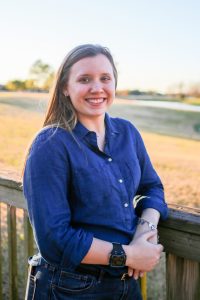 JAYLA BLANKE is a second-year master’s student originally from Houston, Texas. She earned her bachelor’s degree from the Capstone in 2018, majoring in biology and marine science. Her passion for natural resource management and conservation has led her to investigate the distribution, sources, and socioeconomic perceptions of marine debris in Belize. She spent the summer of 2019 performing fieldwork while also serving as a teaching assistant for Dr. Steinberg’s Belize tropical conservation study abroad course. This year she also represented the department in the Three Minute Thesis semi-finals. She plans to continue her Capstone education through the Ph.D. program this upcoming fall.
JAYLA BLANKE is a second-year master’s student originally from Houston, Texas. She earned her bachelor’s degree from the Capstone in 2018, majoring in biology and marine science. Her passion for natural resource management and conservation has led her to investigate the distribution, sources, and socioeconomic perceptions of marine debris in Belize. She spent the summer of 2019 performing fieldwork while also serving as a teaching assistant for Dr. Steinberg’s Belize tropical conservation study abroad course. This year she also represented the department in the Three Minute Thesis semi-finals. She plans to continue her Capstone education through the Ph.D. program this upcoming fall.
JESS BLANKENSHIP completed her undergraduate studies at Birmingham-Southern College with a Bachelors in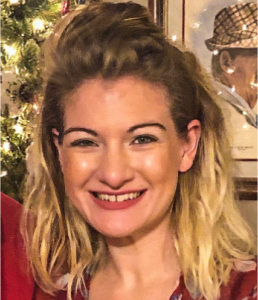 Urban Environmental Studies. Jess is a first year’s master’s student at the University who is interested in regional and community planning. Jess is doing her research on how urban sprawl affects low-income communities in Birmingham. Jess’s hope is that this research will help community planners in similar mid-sized cities mitigate some of the long-term problems that come about from urban sprawl. When she is not working on research or grading labs Jess enjoys being outdoors with her dogs and camping with her Fiancé and little boy.
Urban Environmental Studies. Jess is a first year’s master’s student at the University who is interested in regional and community planning. Jess is doing her research on how urban sprawl affects low-income communities in Birmingham. Jess’s hope is that this research will help community planners in similar mid-sized cities mitigate some of the long-term problems that come about from urban sprawl. When she is not working on research or grading labs Jess enjoys being outdoors with her dogs and camping with her Fiancé and little boy.
KIMBERLY BROTHERS is a new master’s student who started in the Spring 2020 semester. She graduated from The University of Alabama in 2018 with a B.S. in Geography. Kimberly is a TA for GY 101 and has been working with Dr. Senkbeil on projects related to Hurricanes Dorian and Florence.
EVAN CASS is a first-year master’s student from Decatur, Georgia. He completed his Bachelor of Science degree in Environmental Science from the University of Alabama in 2019 through the Accelerated Master’s Program before beginning his graduate work full time in 2020. His proposed thesis research focuses on the relationship between resident risk perceptions and municipal policy pertaining to natural hazards in coastal communities.
AMBER “AYWEN” CHAN is a first-year master’s student from Norman, Oklahoma. During the Spring 2019 semester, they graduated summa cum laude with a B.A. in Geography, minor in GIS, and Global Studies Certificate. They also started coursework towards the completion of their M.S. through the Accelerated Master’s Program and achieved full graduate student status in the fall of 2019. Currently, they are working on thesis work centered around understanding the potential impacts of electronic waste on Agbogbloshie, a multi-faceted e-waste site in Accra, Ghana.
JORDAN CISSELL completed his Ph.D. under the supervision of Dr. Michael Steinberg in Summer 2020 and is now an assistant professor in the Department of Geography and Sociology at Samford University in Birmingham, Alabama. A lifelong resident of Alabama, Jordan first came to the UA Department of Geography as an M.S. student in Fall 2015 after completing his B.S. in accounting at UA in Spring 2015. He feels very fortunate to have spent the past five years with such a fantastic group of people, and he looks forward to continued interaction with the Department for many years to come!
now an assistant professor in the Department of Geography and Sociology at Samford University in Birmingham, Alabama. A lifelong resident of Alabama, Jordan first came to the UA Department of Geography as an M.S. student in Fall 2015 after completing his B.S. in accounting at UA in Spring 2015. He feels very fortunate to have spent the past five years with such a fantastic group of people, and he looks forward to continued interaction with the Department for many years to come!
JONI CORBIN is a second-year master’s student originally from Bellevue, Washington. She graduated from UA in 2011 with a M.S. in Civil and Environmental Engineering and spent the last 4 years teaching for the Tuscaloosa City Schools. She is currently finishing her thesis research titled “Using Paleoflood Hydrology to Extend Flood Records and Understand Large Floods in South Sauty Creek, Buck’s Pocket State Park, AL”. The research focuses on recreating paleofloods for South Sauty Creek, located in north Alabama, to mitigate future flood hazards along the Tennessee River, under the guidance of Dr. Lisa Davis. She presented her research at the Alabama Water Resources Conference and Symposium in September and the Alabama Water Institute Symposium in December 2019. She also participated in the Club Geography partnership with Woodland Forest Elementary School teaching first graders about map making. Joni hopes to continue to merge her scientific research and K-12 education outreach moving forward. Outside of school, she enjoys hiking with her dog, Kaia.
JOSHUA DUGAT In December 2019, Josh Dugat successfully defended his MS thesis, “Self-caught fish consumption and methylmercury advisories in Tuscaloosa County.” He will defend an MFA thesis in UA’s Department of English in April 2020. Josh continues to teach with Alabama Prison Arts + Education Project, and backpacks all across Tuscaloosa with his one-year-old son.
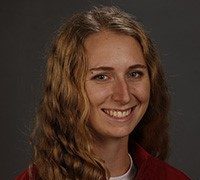 RAIEN EMERY was a NOAA Hollings Scholar and held an appointment with the NOAA Northwest Fisheries Science Center in summer 2019. Originally from Wyoming, she joined the Forest Dynamics Lab as a sophomore in the UA Environmental Science Program. As an Accelerated Master’s Program student, she spent one semester as a full-time graduate with a thesis focused on forest fuel flammability, composition, and loading in longleaf pine woodlands. The results of this research will aid forest managers in applying prescribed fire to achieve desired conditions in mixed pine-hardwood stands. Raien was also an Academic All-American on the UA rowing team and she spent a lot of time on the Black Warrior River.
RAIEN EMERY was a NOAA Hollings Scholar and held an appointment with the NOAA Northwest Fisheries Science Center in summer 2019. Originally from Wyoming, she joined the Forest Dynamics Lab as a sophomore in the UA Environmental Science Program. As an Accelerated Master’s Program student, she spent one semester as a full-time graduate with a thesis focused on forest fuel flammability, composition, and loading in longleaf pine woodlands. The results of this research will aid forest managers in applying prescribed fire to achieve desired conditions in mixed pine-hardwood stands. Raien was also an Academic All-American on the UA rowing team and she spent a lot of time on the Black Warrior River.
ALEXANDER FRIES is a second-year master’s student originally from Dothan, Alabama. He completed his 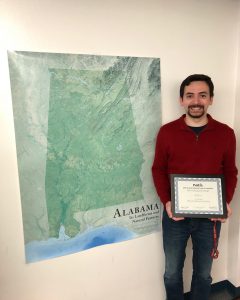 undergraduate degrees in Geography and History at The University of Alabama in 2018, during which time he was also introduced to the world of cartography by working in the Cartographic Research Lab under supervisor Craig Remington. His thesis research involved an exploratory statistical analysis of geographical factors that have influenced urban growth and population in Alabama over the course of its history. As a cartographer in the Cartographic Research Lab, over the past year Alex has primarily been responsible with creating more than two hundred maps of various river basins for an upcoming reference text on the rivers of North America. He presented his work at the 2019 annual meeting of the North American Cartographic Information Society (NACIS) in Tacoma, Washington. Alex also served as the President of Club Geography during the 2019-2020 academic year.
undergraduate degrees in Geography and History at The University of Alabama in 2018, during which time he was also introduced to the world of cartography by working in the Cartographic Research Lab under supervisor Craig Remington. His thesis research involved an exploratory statistical analysis of geographical factors that have influenced urban growth and population in Alabama over the course of its history. As a cartographer in the Cartographic Research Lab, over the past year Alex has primarily been responsible with creating more than two hundred maps of various river basins for an upcoming reference text on the rivers of North America. He presented his work at the 2019 annual meeting of the North American Cartographic Information Society (NACIS) in Tacoma, Washington. Alex also served as the President of Club Geography during the 2019-2020 academic year.
DAVIS GOODE earned his MS in the Forest Dynamics Lab in 2019 and is currently in his first year of the PhD program. As an undergraduate Environmental Science student, he published research linking canopy disturbance to structural complexity in and an upland oak stand. He also has published research on the effects of drought on longleaf pine radial growth, and edge influence in longleaf pine woodlands following catastrophic disturbance. His dissertation research focuses on restoring and maintaining shortleaf pine in mixed pine-hardwood stands to enhance forest health and resiliency. This summer will be his fifth field season with the Forest Dynamics Lab.
KATHERINE HENRY is a first-year master’s student from Tulsa, Oklahoma. She completed her undergraduate  studies at Oklahoma State University has received her Bachelor of Science in Geography, Bachelor of Arts in Sociology, and a minor in Middle Eastern Studies. Her undergraduate honors thesis was focused on the topic of the anthropogenic influence on climate change-induced drought in the American Southwest. Her research interests include remote sensing of water quality and the influence of land use/land cover on water quality. Her regions of interest are the Middle East and South Asia. She is working under the guidance of Dr. Luoheng Han and her thesis is focused on the application of remote sensing to classify land use/land cover overtime for Keenjhar Lake in Pakistan. After graduate school, she hopes to attend medical school on a combined M.D./PhD track. Her hobbies outside of school include reading, kayaking, hiking, and traveling. She went backpacking for three weeks in Morocco for winter break.
studies at Oklahoma State University has received her Bachelor of Science in Geography, Bachelor of Arts in Sociology, and a minor in Middle Eastern Studies. Her undergraduate honors thesis was focused on the topic of the anthropogenic influence on climate change-induced drought in the American Southwest. Her research interests include remote sensing of water quality and the influence of land use/land cover on water quality. Her regions of interest are the Middle East and South Asia. She is working under the guidance of Dr. Luoheng Han and her thesis is focused on the application of remote sensing to classify land use/land cover overtime for Keenjhar Lake in Pakistan. After graduate school, she hopes to attend medical school on a combined M.D./PhD track. Her hobbies outside of school include reading, kayaking, hiking, and traveling. She went backpacking for three weeks in Morocco for winter break.
KATIE JACK is a second-year master’s student originally from Albany, Georgia. She was part of the first cohort of students in the Accelerated Master’s Program in the Department of Geography. In the fall of 2018, she earned her Bachelor of Science in Geography with a minor in Anthropology from the University of Alabama, and in the spring of 2019, she transitioned to a full-time graduate student and began teaching Geography 101 labs. Her research interests focus on environmental justice, and in the spring of 2020 she successfully defended her thesis, “Developing a Holistic Methodology for Identifying Areas of Potential Environmental Justice Concerns: A Case Study of Jefferson County, Alabama,” which explored the social, economic, and environmental history of Jefferson County, Alabama and the spatial relationships between pollution and demographics in this area.
students in the Accelerated Master’s Program in the Department of Geography. In the fall of 2018, she earned her Bachelor of Science in Geography with a minor in Anthropology from the University of Alabama, and in the spring of 2019, she transitioned to a full-time graduate student and began teaching Geography 101 labs. Her research interests focus on environmental justice, and in the spring of 2020 she successfully defended her thesis, “Developing a Holistic Methodology for Identifying Areas of Potential Environmental Justice Concerns: A Case Study of Jefferson County, Alabama,” which explored the social, economic, and environmental history of Jefferson County, Alabama and the spatial relationships between pollution and demographics in this area.
CARLY JONES is a first-year master’s student who returned to her native Tuscaloosa after graduating from Boston University in 2018 with a B.S. in Environmental Analysis and Policy. Prior to joining the Geography Department where she works as a research assistant in the Dendrochronology Lab under Dr. Matthew Therrell, Carly served as the Alabama Water Institute’s Outreach Coordinator. She is currently assisting with an EPA sponsored project focused on using tree rings to study streamflow in southeastern rivers. Her research goals are focused on the improvement of the paleoclimate record for the Mobile-Tensaw River Delta and expanding the broader understanding of the region’s hydrologic variability. When away from microscopes, Carly lovingly cares for her houseplant jungle and two sweet dogs.
 JONATHAN KLEINMAN joined the Department as a master’s student in 2015 and is now in his third year of the Ph.D. program. Prior to his time at Alabama, Jonathan studied Ecology and Evolutionary Biology at the University of Colorado and worked as a field technician on public lands in Georgia, Idaho, and Tennessee. His research focusses on the ecological consequences of interacting disturbances in forest ecosystems. This summer will be Jonathan’s sixth field season with the Forest Dynamics Lab monitoring the effects of wind disturbance, salvage logging, and prescribed fire on longleaf pine stand dynamics in the Talladega National Forest.
JONATHAN KLEINMAN joined the Department as a master’s student in 2015 and is now in his third year of the Ph.D. program. Prior to his time at Alabama, Jonathan studied Ecology and Evolutionary Biology at the University of Colorado and worked as a field technician on public lands in Georgia, Idaho, and Tennessee. His research focusses on the ecological consequences of interacting disturbances in forest ecosystems. This summer will be Jonathan’s sixth field season with the Forest Dynamics Lab monitoring the effects of wind disturbance, salvage logging, and prescribed fire on longleaf pine stand dynamics in the Talladega National Forest.
ANNA HOLLAND-LEVINE successfully defended her MS thesis, titled “The social-ecological system of sheep 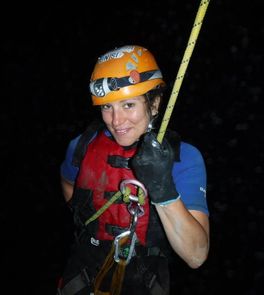 ranching, recreation, and large carnivores on multiple-use U.S. public lands” in March. In December, she organized a geography education outreach event with Woodland Forrest Elementary School in Tuscaloosa. Anna presented a summary of her thesis project at the 2020 virtual meeting of the AAG and is now working on formatting this research for publication. She’s enjoyed her experience at UA so much that she’s considering a Ph.D.! Anna is looking forward to hiking and camping the American West this summer as she identifies opportunities to continue contributing to land and natural resource management.
ranching, recreation, and large carnivores on multiple-use U.S. public lands” in March. In December, she organized a geography education outreach event with Woodland Forrest Elementary School in Tuscaloosa. Anna presented a summary of her thesis project at the 2020 virtual meeting of the AAG and is now working on formatting this research for publication. She’s enjoyed her experience at UA so much that she’s considering a Ph.D.! Anna is looking forward to hiking and camping the American West this summer as she identifies opportunities to continue contributing to land and natural resource management.
YANG LIU is a second-year Ph.D. student in the Environmental Remote Sensing Laboratory. He received the B.S.  degree in geographic information system from Sun Yat-Sen University, Guangzhou, China, in 2015, and the M.A. degree in geography from the University of Cincinnati, Cincinnati, OH, USA, in 2018. His research interests include image fusion, spatiotemporal analysis, image object, LiDAR applications, and satellite hydrology. Yang won the first place in the Student Illustrated Paper Competition of the Remote Sensing Specialty Group in the 2018 Annual Meeting of the Association of American Geographers (AAG) in New Orleans, Louisiana; and also the runner-up in the Student Oral Presentation Competition of the Landscape Specialty Group in the 2019 Annual Meeting of the AAG in Washington D. C. In the last year, his main research targets on the quantitative investigation of the aquatic habitats in the Mobile River Basin using Sentinel-2 data.
degree in geographic information system from Sun Yat-Sen University, Guangzhou, China, in 2015, and the M.A. degree in geography from the University of Cincinnati, Cincinnati, OH, USA, in 2018. His research interests include image fusion, spatiotemporal analysis, image object, LiDAR applications, and satellite hydrology. Yang won the first place in the Student Illustrated Paper Competition of the Remote Sensing Specialty Group in the 2018 Annual Meeting of the Association of American Geographers (AAG) in New Orleans, Louisiana; and also the runner-up in the Student Oral Presentation Competition of the Landscape Specialty Group in the 2019 Annual Meeting of the AAG in Washington D. C. In the last year, his main research targets on the quantitative investigation of the aquatic habitats in the Mobile River Basin using Sentinel-2 data.
ALEXANDRA LOGAN is a second-year master’s student working in the Forest Dynamics Lab. She completed her 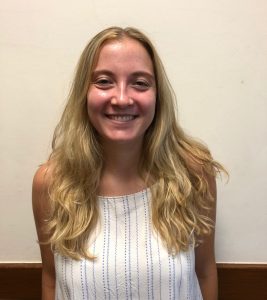 BS degree from Syracuse University in May 2018 with majors in Geography and Biology, with a focus on Environmental Science. She successfully defended her thesis titled, “Influence of coarse woody debris on seedlings and saplings in a Pinus palustris woodland” this past spring and presented her findings at the American Association of Geographers Annual Meeting in April. Alexandra is currently working on a project that utilizes General Land Office records to reconstruct past forest conditions of Alabama. She is also collaborating with members of the Forest Stewards Guild to write a report on best management practices in the Southeast as they relate to forested wetlands. The final report will be available as an online resource for silviculturists, loggers, and landowners.
BS degree from Syracuse University in May 2018 with majors in Geography and Biology, with a focus on Environmental Science. She successfully defended her thesis titled, “Influence of coarse woody debris on seedlings and saplings in a Pinus palustris woodland” this past spring and presented her findings at the American Association of Geographers Annual Meeting in April. Alexandra is currently working on a project that utilizes General Land Office records to reconstruct past forest conditions of Alabama. She is also collaborating with members of the Forest Stewards Guild to write a report on best management practices in the Southeast as they relate to forested wetlands. The final report will be available as an online resource for silviculturists, loggers, and landowners.
RAY LOMBARDI is a doctoral candidate in the Department of Geography with a specialization in flood science at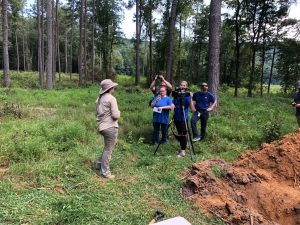 the University of Alabama. Prior to beginning her Ph.D. work, Ray earned her M.S. in Geography from UA, and a B.S. in Environmental Science from Longwood University in Farmville, Va. Ray’s research interests include paleoflood hydrology, flood frequency statistics, and human-riverine interactions. More specifically, her work examines the spatio-temporal relationship of flood deposits preserved in floodplains to improve the prediction of future floods. Her research combines a passion for river systems, watershed management, and playing in the dirt.
the University of Alabama. Prior to beginning her Ph.D. work, Ray earned her M.S. in Geography from UA, and a B.S. in Environmental Science from Longwood University in Farmville, Va. Ray’s research interests include paleoflood hydrology, flood frequency statistics, and human-riverine interactions. More specifically, her work examines the spatio-temporal relationship of flood deposits preserved in floodplains to improve the prediction of future floods. Her research combines a passion for river systems, watershed management, and playing in the dirt.
In 2019, Ray worked as Dr. Davis’ research assistant for a paleoflood hydrology investigation funded by Tennessee Valley Authority (TVA). This research included conducting fieldwork on the Tennessee River, generating paleoflood hydraulic models, and performing flood frequency analyses. Flood frequency curves developed by Dr. Davis and Ray greatly reduced uncertainty in flood frequency estimates for the middle Tennessee River and will be used in TVA’s upcoming risk assessment of a major dam in Northern Alabama. In addition to her research assistantship, Ray presented her dissertation research at conferences including the American Geophysical Union in San Francisco, CA. Ray published her master’s research titled, “Fluvial activity in major river basins of the eastern USA during the Holocene” in The Holocene. Ray also served as the Department of Geography’s Graduate Student Association representative and served on the awards committee for the American Association of Geographer’s Paleoenvironment Change Group.
PENELOPE MITCHELL joined the Ph.D. program in January 2019 and is working under the research guidance of 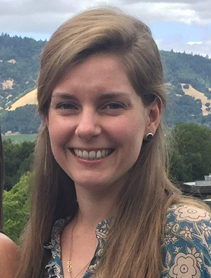 Dr. Curtin in the Laboratory for Location Science. Penelope was awarded the 2020 Outstanding Graduate Award for the Department of Geography. Her research interests include healthcare accessibility, complex systems, spatial optimization, spatial analysis, and the opioid epidemic. Her dissertation research focuses on healthcare accessibility and resource allocation in response to the opioid epidemic. Additionally, Penelope is a graduate research assistant contributing to the Collective Spatial Cognition research effort related to knowledge discovery regarding how groups of people learn about space and act on the spatial knowledge they collectively gain. Prior to starting with UA, Penelope was an instructional designer for the University of West Florida, as well as an online adjunct professor teaching Cartographic Design for Johns Hopkins Online Master of Science in GIS program. She received her M.S. in Environmental Studies, a Graduate GIS Certificate, and B.S. in Environmental Policy from the University of West Florida.
Dr. Curtin in the Laboratory for Location Science. Penelope was awarded the 2020 Outstanding Graduate Award for the Department of Geography. Her research interests include healthcare accessibility, complex systems, spatial optimization, spatial analysis, and the opioid epidemic. Her dissertation research focuses on healthcare accessibility and resource allocation in response to the opioid epidemic. Additionally, Penelope is a graduate research assistant contributing to the Collective Spatial Cognition research effort related to knowledge discovery regarding how groups of people learn about space and act on the spatial knowledge they collectively gain. Prior to starting with UA, Penelope was an instructional designer for the University of West Florida, as well as an online adjunct professor teaching Cartographic Design for Johns Hopkins Online Master of Science in GIS program. She received her M.S. in Environmental Studies, a Graduate GIS Certificate, and B.S. in Environmental Policy from the University of West Florida.
NISHANI MORAGODA is a Ph.D. student and a member of the Surface Dynamics Modeling Lab, with research  interests in impacts of climate change and human activities on water resources, fluvial sediment flux dynamics, and global-scale hydrological modeling. Her dissertation research, under the guidance of Professor Sagy Cohen, is focused on the impacts of anthropogenic and climatic changes on global riverine fluxes in the 21st century. For her master’s thesis, entitled “Climate-Induced Trends in Global Riverine Water Discharge and Suspended Sediment Dynamics in the 21st Century”, she was selected as one of the recipients of the College of Arts & Sciences’ Outstanding Master’s Thesis Award in 2019.
interests in impacts of climate change and human activities on water resources, fluvial sediment flux dynamics, and global-scale hydrological modeling. Her dissertation research, under the guidance of Professor Sagy Cohen, is focused on the impacts of anthropogenic and climatic changes on global riverine fluxes in the 21st century. For her master’s thesis, entitled “Climate-Induced Trends in Global Riverine Water Discharge and Suspended Sediment Dynamics in the 21st Century”, she was selected as one of the recipients of the College of Arts & Sciences’ Outstanding Master’s Thesis Award in 2019.
DINUKE MUNASINGHE is a PhD student and member of the Surface Dynamics Modelling Lab (SDML),  Department of Geography, with research interests in Remote Sensing Applications in Flood Inundation Mapping, Computational Hydrology, Hydraulic Modeling, and Sediment Transport and Monitoring. Currently, he is working on morphological evolution of global river deltas using a hydrological and remote sensing approach.
Department of Geography, with research interests in Remote Sensing Applications in Flood Inundation Mapping, Computational Hydrology, Hydraulic Modeling, and Sediment Transport and Monitoring. Currently, he is working on morphological evolution of global river deltas using a hydrological and remote sensing approach.
DAVID PHILLIPS is a first-year master’s student in the Forest Dynamics Lab. He completed his Bachelor of 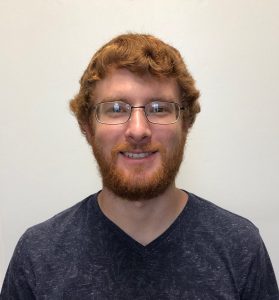 Science in Environmental Science as part of the Accelerated Master’s Program in fall 2019. For his thesis, David is studying spatial patterns of canopy disturbance in relation to regeneration and stand dynamics in a longleaf pine woodland. David is also working with Alexandra Logan to reconstruct forest conditions and analyze vegetation-environment relationships in Alabama prior to widespread European settlement.
Science in Environmental Science as part of the Accelerated Master’s Program in fall 2019. For his thesis, David is studying spatial patterns of canopy disturbance in relation to regeneration and stand dynamics in a longleaf pine woodland. David is also working with Alexandra Logan to reconstruct forest conditions and analyze vegetation-environment relationships in Alabama prior to widespread European settlement.
ASHLEIGH PRICE is a Ph.D. student working under the mentorship of Dr. Kevin Curtin in the Laboratory for Location Science. Prior to beginning her doctoral program, she completed her BS in Geosciences at Virginia Tech and her MS in Geography at the University of Southern Mississippi. Her research interests are in facilities location science, hazard vulnerability and resilience, and the geography of crime.
AUSTIN RANEY Is a second-year master’s student and a member of the Surface Dynamics Modeling Lab, with  research interests in container-based computing, long short-term neural networks, stochastic hydrological model parameterization, statistical attribution of climatic occultations to explain heatwave frequency, magnitude, and duration, and remote sensing applications to estimate riverine bankfull parameters. This year he contributed an open-source Python and Docker package, The Dockerized Job Scheduler, that drastically simplifies model usage and accelerates hypothesis testing of the National Water Model. Currently, he is working on extracting river widths for the conterminous United States using remote sensing techniques to drive a novel approach to estimate riverine bankfull parameters. Aside from his thesis work, Austin is participating in ongoing collaborative activities exploring climatic osculation influence on heatwaves with Dr. David Keellings and investigating the utility of long-short term neural networks to improve hydrological modeling results with Department of Geology Ph.D. student Jonathan Frame.
research interests in container-based computing, long short-term neural networks, stochastic hydrological model parameterization, statistical attribution of climatic occultations to explain heatwave frequency, magnitude, and duration, and remote sensing applications to estimate riverine bankfull parameters. This year he contributed an open-source Python and Docker package, The Dockerized Job Scheduler, that drastically simplifies model usage and accelerates hypothesis testing of the National Water Model. Currently, he is working on extracting river widths for the conterminous United States using remote sensing techniques to drive a novel approach to estimate riverine bankfull parameters. Aside from his thesis work, Austin is participating in ongoing collaborative activities exploring climatic osculation influence on heatwaves with Dr. David Keellings and investigating the utility of long-short term neural networks to improve hydrological modeling results with Department of Geology Ph.D. student Jonathan Frame.
CARRIE SCHMITT earned a BS in Environmental Science in December 2019, after participating in UA’s Accelerated Master’s Program. She is now a full-time master’s student, now preparing her thesis proposal defense. Carrie spent the summer of 2019 working for the National Ecological Observatory Network (NEON), which is proving to have been a valuable experience regarding the developing interests in wildlife conservation, endangered species, and natural protected areas. Her current thesis work examines the assessment of natural protected areas; specifically, the metrics, tools and field techniques by which assessments do (or do not) lead to effective wildlife conservation.
EMILY SCHNARRE is a first-year master’s student in the Geography department, studying under Dr. Appiah- Opoku. Originally from Pittsburgh, Pennsylvania she completed her undergraduate degree in Geology with a minor in Political Science here at the University of Alabama in 2015. Her research focuses on multimodal transportation systems and the impacts of infrastructure inequalities on network connectivity.
Opoku. Originally from Pittsburgh, Pennsylvania she completed her undergraduate degree in Geology with a minor in Political Science here at the University of Alabama in 2015. Her research focuses on multimodal transportation systems and the impacts of infrastructure inequalities on network connectivity.
LYDIA STANLEY is a first-year master’s student originally from Pensacola, Florida. She is 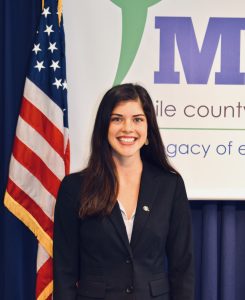 currently working under the guidance of Dr. Nicholas Magliocca and is part of the Human-Environment Interaction Modeling and Analysis (HEIMA) lab. After completing her bachelor’s degree at UA in Environmental Science she continued her education at the Capstone and researches the effects of Land Use Land Cover (LULC) change and urbanization on Urban Heat Islands (UHIs) in Mobile, AL. She hopes that her research will communicate the importance of mapping LULC to aid in creating UHIs mitigation strategies. In her free time, she enjoys playing/coaching volleyball, boating in the Gulf, or spending quality time with her friends.
currently working under the guidance of Dr. Nicholas Magliocca and is part of the Human-Environment Interaction Modeling and Analysis (HEIMA) lab. After completing her bachelor’s degree at UA in Environmental Science she continued her education at the Capstone and researches the effects of Land Use Land Cover (LULC) change and urbanization on Urban Heat Islands (UHIs) in Mobile, AL. She hopes that her research will communicate the importance of mapping LULC to aid in creating UHIs mitigation strategies. In her free time, she enjoys playing/coaching volleyball, boating in the Gulf, or spending quality time with her friends.
DANIEL TURNER is a Ph.D. student at the University of Alabama in the Department of Geography, where he is a Research Assistant in Dr. Kevin Curtin’s Laboratory for Location Science. He holds an A.B. in History from the University of Chicago and an M.S. in GIS from the University of Texas at Dallas. His research interests include complex systems, spatial optimization, network analysis, human-environment interaction, conservation, and software development.
MIN XU is a Ph.D. student in the Department of Geography at the University of Alabama. In May 2015, she received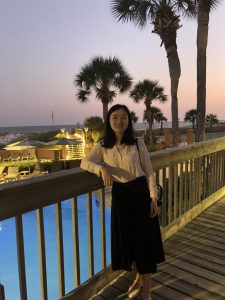 an M.A. degree in Geography & GIS from the University of Cincinnati (UC). In August 2015, she was admitted to the Ph.D. program of Geography & GIS and spent another three years at UC. She then transferred to The University of Alabama (UA) in August 2018 and is currently pursuing a Ph.D. degree in Geography at UA. Her research interests include remote sensing, geospatial analysis, and environmental studies with a focus on the water quality problems of freshwater resources. Her dissertation research focuses on the development of numerical algorithms for deriving water quality parameters for inland water bodies using state-of-the-art remote sensing technology. As a graduate research assistant, she is currently working on the NASA funded project “Remote Sensing Research for Harmful Algal Blooms in Inland Waters” led by her advisor Dr. Hongxing Liu. In the past few years, she has participated in the extensive field campaigns to collect inland water quality data for Harsha Lake and Caesar Creek in Ohio, western Lake Eire, Taylorsville Lake in Kentucky, Brookville Lake in Indiana, the Ohio River, and the Black Warrior River and Tombigbee River in Alabama. In February 2019, she was awarded the Graduate Council Fellowship (Category 2: Research and Creative Activity) at UA to support her ongoing dissertation research. She also received the 2020 Outstanding Graduate Research Award in the Department of Geography.
an M.A. degree in Geography & GIS from the University of Cincinnati (UC). In August 2015, she was admitted to the Ph.D. program of Geography & GIS and spent another three years at UC. She then transferred to The University of Alabama (UA) in August 2018 and is currently pursuing a Ph.D. degree in Geography at UA. Her research interests include remote sensing, geospatial analysis, and environmental studies with a focus on the water quality problems of freshwater resources. Her dissertation research focuses on the development of numerical algorithms for deriving water quality parameters for inland water bodies using state-of-the-art remote sensing technology. As a graduate research assistant, she is currently working on the NASA funded project “Remote Sensing Research for Harmful Algal Blooms in Inland Waters” led by her advisor Dr. Hongxing Liu. In the past few years, she has participated in the extensive field campaigns to collect inland water quality data for Harsha Lake and Caesar Creek in Ohio, western Lake Eire, Taylorsville Lake in Kentucky, Brookville Lake in Indiana, the Ohio River, and the Black Warrior River and Tombigbee River in Alabama. In February 2019, she was awarded the Graduate Council Fellowship (Category 2: Research and Creative Activity) at UA to support her ongoing dissertation research. She also received the 2020 Outstanding Graduate Research Award in the Department of Geography.
PEI ZHANG is a third-year Ph.D. student from Henan province in China. She earned her master’s degree in physical geography from Beijing Normal University and bachelor’s degree in science education from Harbin Normal University. Her research interests include coastal geomorphology, desert landforms evolution, aeolian sediment transport processes, electrostatic effect in sand/dust storms. She joined the University of Alabama in 2017.